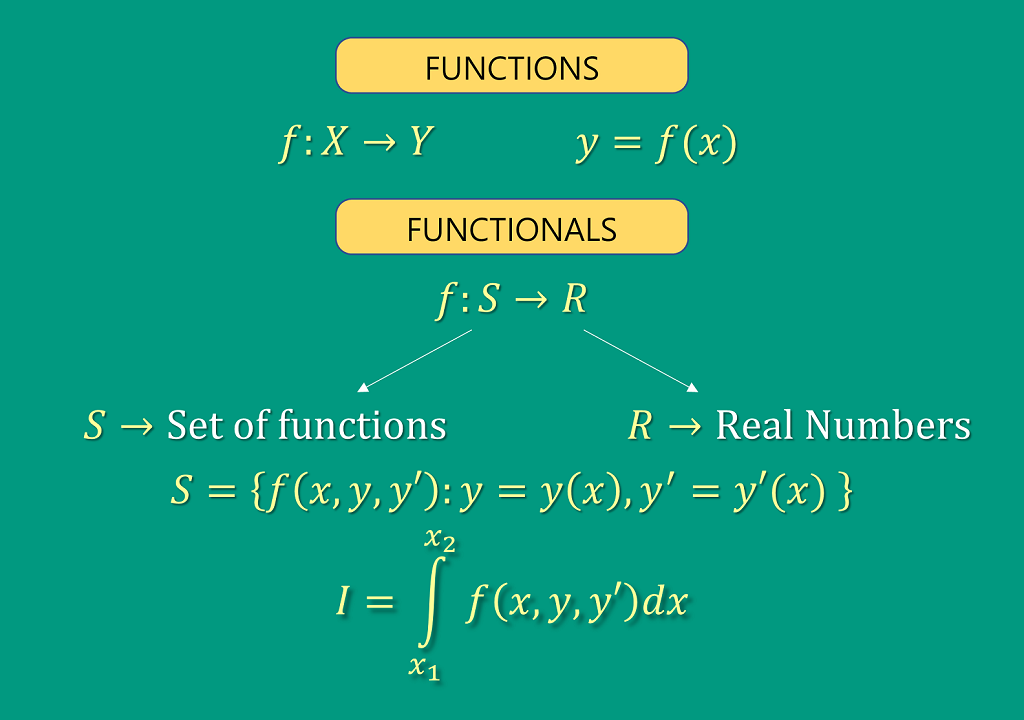Calculus of variations, a branch of mathematics concerned with the problem of finding a function for which the value of a certain integral is either the largest or the smallest possible.
The problem of Calculus of variations was first solved by Jacob Bernoulli in 1696 but a general method of solving such problem was given by Euler.
Recapitulate:
If y=f(x) is a function, then necessary condition for y to be maximum or minimum is
dy/dx=0
§If (d^2 y)/(dx^2 )>0 then that point is minimum point.
§If (d^2 y)/(dx^2 )<0 then that point is maximum point.
If z=f(x,y) is a function, then necessary condition for z to be maximum or minimum is
∂z/∂x=0, ∂z/∂y=0
§If (∂^2 z)/(∂x^2 ) (∂^2 z)/(∂y^2 )-((∂^2 z)/∂x∂y)^2>0 and (∂^2 z)/(∂x^2 )>0 then that point is minimum point.
§If (∂^2 z)/(∂x^2 ) (∂^2 z)/(∂y^2 )-((∂^2 z)/∂x∂y)^2>0 and (∂^2 z)/(∂y^2 )<0 then that point is minimum point.



I am extremely inspired together with your writing skills as well as with the layout to your weblog. Is this a paid subject or did you customize it your self? Either way stay up the nice quality writing, it’s uncommon to see a nice weblog like this one these days!
I am extremely inspired together with your writing skills as
smartly as with the format to your weblog.
Is this a paid subject or did you customize it your self?
Anyway stay up the nice quality writing, it’s uncommon to look a great weblog like this one today.
Instagram Auto follow!